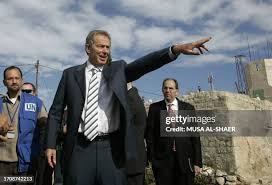The Influence of Tony Blair on Modern British Politics

Introduction
Tony Blair, the former Prime Minister of the United Kingdom, served from 1997 to 2007, marking a pivotal period in British politics. His leadership not only shaped the Labour Party but also transformed the political landscape of the UK through various reforms and notable decisions, particularly regarding foreign policy. As discussions about his legacy intensify, understanding Blair’s contributions and controversies remains relevant in contemporary political discourse.
Blair’s Early Political Career
Blair entered politics as a member of the Labour Party, winning his first seat as the MP for Sedgefield in 1983. Rising through the ranks, he became the party’s leader in 1994 after the sudden death of John Smith. Under his leadership, Labour shifted towards the political centre, embracing what would be termed ‘New Labour,’ a branding that focused on modernising the party’s image and policies to appeal to a broader electorate.
Key Policies and Reforms
Blair’s tenure saw significant reforms across various sectors. His government introduced the minimum wage, increased investment in public services, and established the devolved parliaments in Scotland and Wales. Perhaps most notable was the ‘Good Friday Agreement’ in 1998, which paved the way for peace in Northern Ireland, illustrating Blair’s commitment to addressing complex social issues.
Controversies and Iraq War
Despite these achievements, Blair’s leadership was marred by controversy, notably his decision to support the United States in the invasion of Iraq in 2003. This decision, based on the alleged possession of weapons of mass destruction by Saddam Hussein, faced immense backlash and led to widespread protests. The aftermath of the war continues to influence public opinion on Blair, with many questioning the legality and morality of his actions.
Legacy and Current Relevance
As of 2023, Blair remains a polarising figure. His impact on British politics is unmistakable, shaping the Labour Party’s identity and public policy. Recently, he has been involved in various initiatives addressing global issues, including climate change and public health. The Tony Blair Institute for Global Change continues to advocate for progressive policies, striving to address challenges like misinformation and governance.
Conclusion
In conclusion, Tony Blair’s political career offers critical insights into the evolution of modern British politics. His legacy, forged through both achievements and controversies, remains significant as contemporary leaders grapple with political challenges. Understanding Blair’s impact is essential for anyone interested in the ongoing narrative of UK politics and its future direction.








